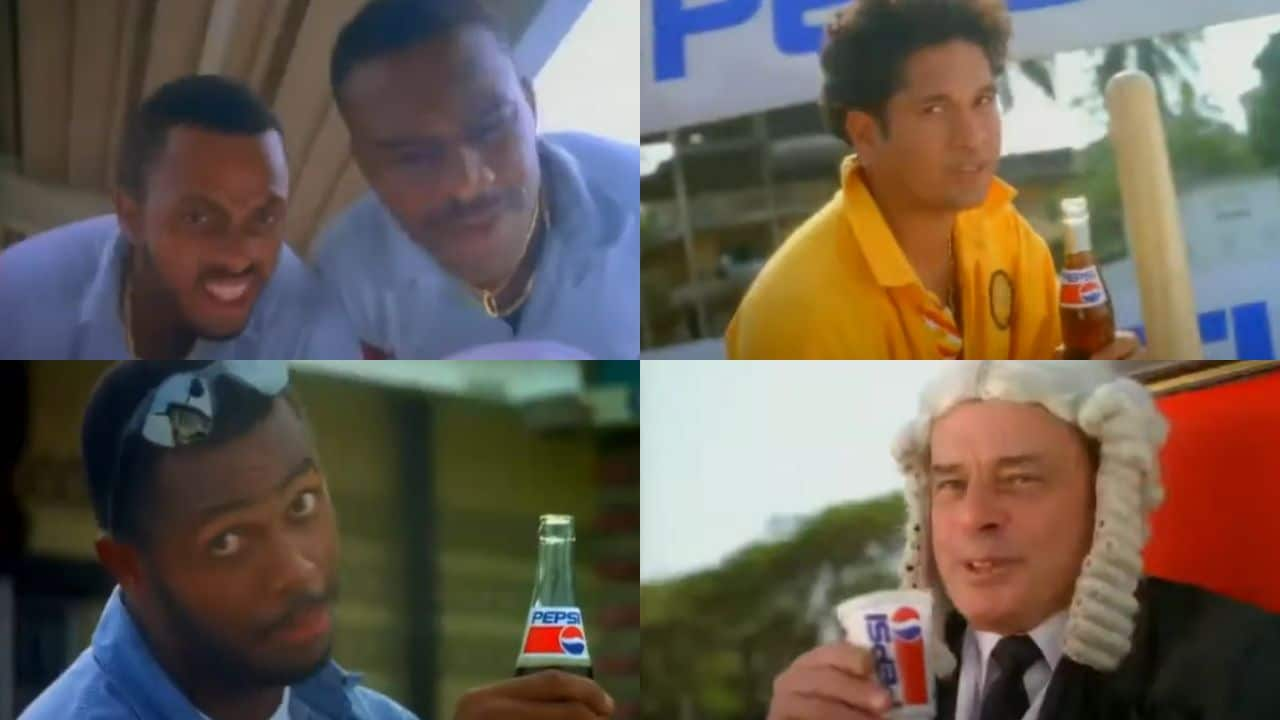“Officially, cricket is played in whites at a leisurely pace. The official players are gentlemen of restraint who have to drink the official drink.” The ad, which opens with this statement, highlights cricketers at play displaying various emotions. It features Sachin Tendulkar, Vinod Kambli, Mohammed Azharuddin, etc. Towards the end, Tendulkar is seen inserting a stump into the ground, drinking Pepsi, and saying, “Nothing Official About It.’’
That was in 1996. The campaign helped Pepsi grab eyeballs even though it lost the official drinks sponsorship rights to Coca-Cola, aka Coke.
Genesis
PepsiCo, the American multinational which had left India in 1962 due to slow sales, found its way back in 1989.
Four years later, in 1993, Coke also re-entered India after exiting in 1977 following its refusal to comply with regulatory requirements, which mandated that it on-board an Indian partner and share its secret formula with it.
With the arrival of its international rival, the stage was set for intense competition between the two giants in their marketing and much else.
In 1996, India was hosting the cricket World Cup and there was a tough fight between Pepsi and Coke over the official drinks sponsorship rights, which the latter took away with a bid of Rs 10 crore.
At the time, JWT was Pepsi’s ad agency. Anuja Chauhan, former junior writer, JWT, in a conversation with Storyboard18, said that losing the bid was a bit of a setback for Pepsi, which had spent a lot on branding around cricket.
But Pepsi turned this ‘loss’ in its favour with its winning ‘Nothing Official About It’ campaign.
Chauhan recollects that team members were banging their heads trying to think of what to do, now that they’d lost the sponsorship rights. Soon, the team got a brief from Pepsi. Vibha Paul Rishi then led marketing at Pepsi India. Storyboard18 has reached out to Rishi but she remained unavailable.
Chauhan remembers that a lot of brands had jumped on to the bandwagon of being the `official’ sponsor of different things pertaining to the game.
This led her to come up with the tagline ‘Nothing Official About It.’ She showed that to then Creative Director Sabyasachi Sengupta and the (late) Shankar Rajan, who was the Servicing Head. They immediately gave it a thumbs up, as did Rishi.
Veteran ad film director Prahlad Kakkar was roped in to produce seven TVCs, most of which were shot in Trinidad, and some in Mumbai. The tagline was used as is, no translations were done for any regional language versions.
On roping in cricketers for the campaign, Chauhan said that there were no team sponsorships. Tendulkar and Kambli were already on contract with the brand, and individual agreements were signed with each cricketer, including international players like Courtney Walsh.
“In the 1996 World Cup, for the first time, we had blue jerseys. It was a big deal, because till then, officially, cricket was played in white. So when you see players in their coloured jerseys for the first time, and they’re saying ‘Nothing Official About It’, it kind of clicks.”
The television commercials were a huge success.
The campaign is an example of ambush marketing, i.e., a marketing strategy where a brand associates with an event without being the official sponsor. Post its release, changes were made to the laws related to this. “For example, if a particular brand was sponsoring the World Cup, then the player couldn’t do an ad for another brand. They tightened a lot of such loopholes in the law,” said Chauhan.
What were the challenges?
Chauhan said the biggest challenge was that there was no surety that Coca-Cola would say that they were the official soft drink. The brand and the agency felt that Coke might use something like, ‘Refreshing the World Cup,’ or ‘Refreshing the Thirst,’ instead of saying ‘Official Soft Drink of the World Cup’. Because Coke was using ‘refresh’ a lot those days.
Nonetheless, Rishi gave the go-ahead for ‘Nothing Official About It.’ “Vibha felt that even if Coca-Cola said ‘Refreshing the World Cup’ or ‘The Joy of Cricket,’ etc., the point was that every brand was highlighting how they were the ‘official’ ones for the category they belonged to. Hence, she was confident that the campaign would work even though it was a big risk to take,” explained Chauhan.
But Coke spoke about being the ‘Official soft drink’, and the brand and the agency heaved a sigh of relief. The next day, Pepsi released the ‘Nothing Official About It’ campaign.
Read More: When Cherry Chaplin made a brand blossom
